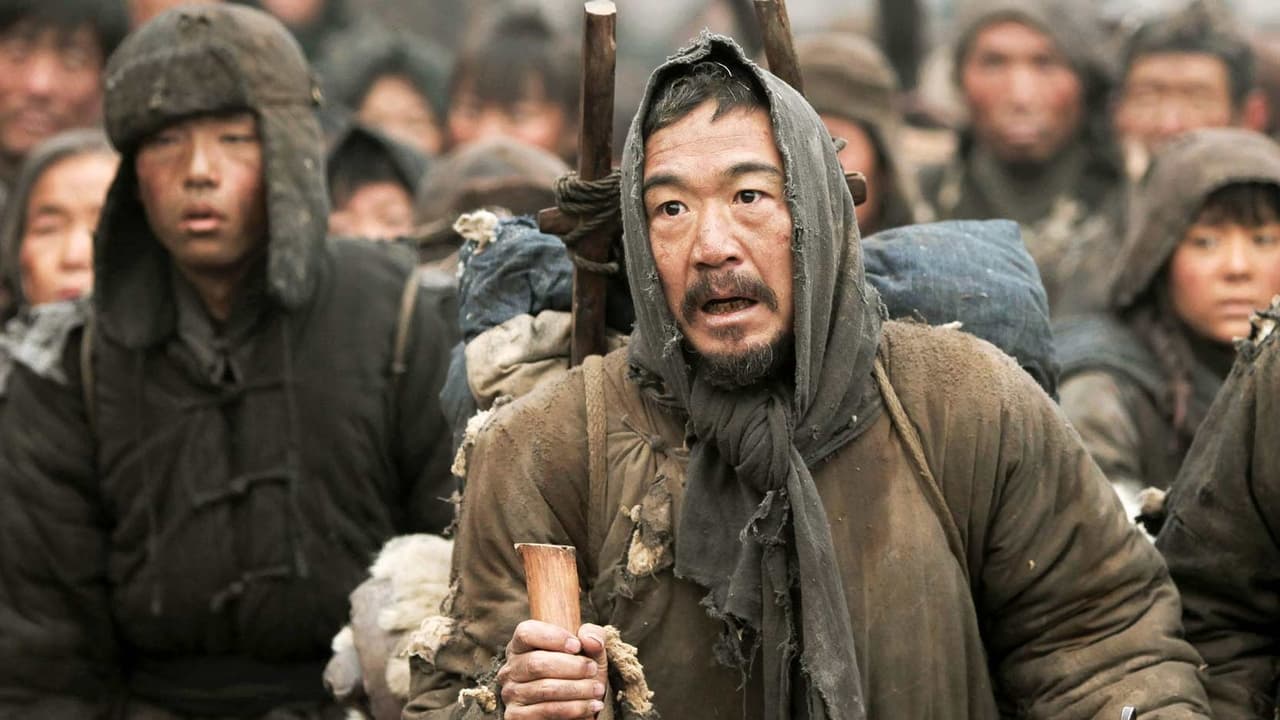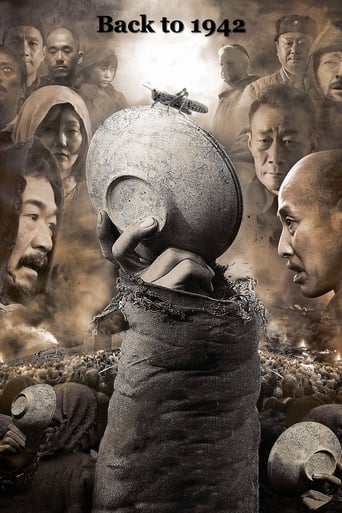



Truly Dreadful Film
recommended
Lack of good storyline.
The thing I enjoyed most about the film is the fact that it doesn't shy away from being a super-sized-cliche;
View MoreThe epic of a disaster: a whole province in central China caught by drought, the people having no choice but leaving their households, taking the large road toward unknown, toward some illusory place where they could find food. Winter 1942-43, war, the army looting the refugees, the enemy bombing army and civilians together, the mass of refugees becoming a mob, all moral values forgotten, episodes of cannibalism, the political leaders caught in a cobweb of petty politics, corruption, and ineffectiveness... the death toll being somewhere between one and three million.Other stories of war and famine will keep coming, repeating the same script, endlessly, going on nowadays and forever... and as always people around turning a deaf ear, pretending unawareness, if not taking advantage:The story of the Honan famine rolled into Chungking like tumbleweeds blown by the wind. "I heard from a man who was there " "I saw in a letter from Loyang " "In Sian they say that " (Theodore H. White quoted in a site of the San Jose Stae Univ.)A survivor's grandchild would tell the story, and based on his novel this movie was made in 2012. A movie with epic breathe, shifting from the mob of refugees to the regional leaders to the national level, up to Generalissimo (Chang Kai-Shek), coming back to the victims, one of the heroes repeating the story of Job, among all atrocities around, nobody's innocent, nobody's evil, it's just our human condition here, it's about us, humans, in one of our worst moments.
View MoreA well made and serious film you shouldn't miss.Back to 1942!How many movie-goers were born before 1942? I think very few...The film is all blood and tear in Chinese history-if you ever read any Chinese history you would know a bit of how the corrupted national party of China ran the country(how they handled the famine) and the history of Japan invaded China (how cold blood of their behaviour against civilians)at the time.To younger people who never experienced war and hunger...please don't expect entertaining plots.
View MoreThis is a profound story, beautifully told, interweaving the plight of a family of famine refugees with a depiction of the Chinese leaders and the difficult decisions they were faced with as the Japanese army closed in on Henan province in 1942.The plot develops in a most engaging manner, depicting the suffering of famine refugees as they trek across the barren, snowy countryside in an effort to reach Shaanxi. Interspersed, we see scenes depicting Chiang Kaishek and his ministers, coolly calculating the expedience of helping the refugees. The finely tailored costumes of Chiang and his secretary contrast with the rags of the refugees. We get the impression that the Chinese leaders are detached from the plight of the ordinary people.The movie depicts the pitiful plight of the refugees without succumbing to sentimentality. The characters are stark and persuasive. Acting and direction are superb. If you are interested in this period of history this movie will not disappoint.
View MoreFeng Xioagang can be considered China's - possibly Asia's - most substantial film maker. His output is increasingly imposing and his box office clout means that the content of his work must come under intense official scrutiny. That made the IF I WERE THE ONE movies quite amazing as an expression of the notion that to be rich is glorious.BACK TO 1942 is clearly a tent pole movie for the Chinese cinema and then carries a double load. It is an intense, long, demanding account of the 1942 Hunan famine and refugee exodus, made more terrible by the parallel war with the Japanese and also a revision of history with Chiang Kai Shek now shown as both calculating and remote, as well as caring and authoritative but only a support player in the story of the land lord and serf reduced to destitution on their awful journey.Intriguingly, Theodore White writer of sixties Wolper Documentaries and "The Mountain Road" shows up effectively in the person of Adrian Brody, as a character.Master crafted, some of the staging is exceptional. The bombing raids are great set pieces and the film manages to keep disaster chic in hand, even if it's so grim.Essential for the serious movie goer, a strain on the casual entertainment seeker.
View More